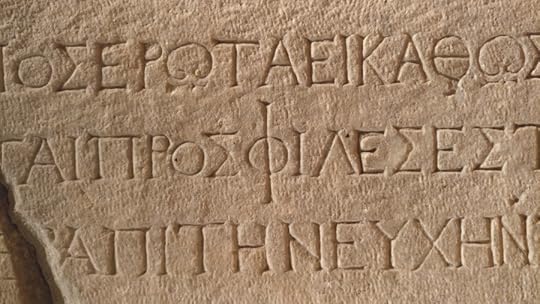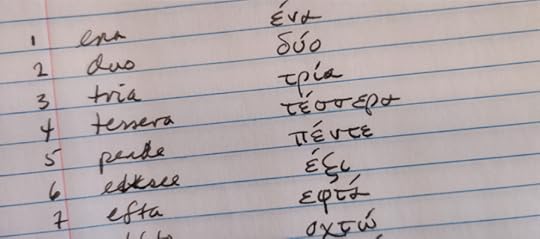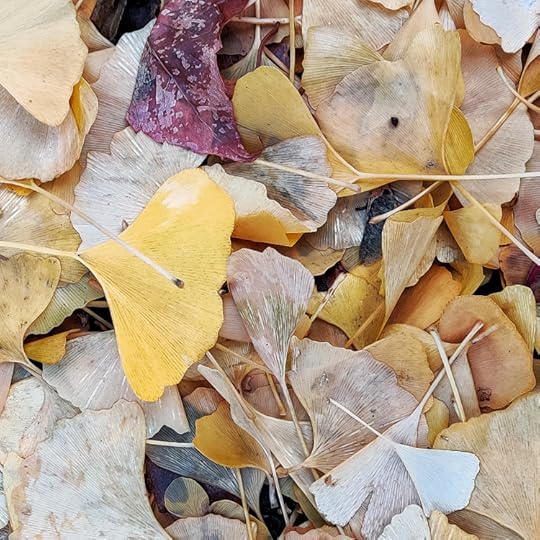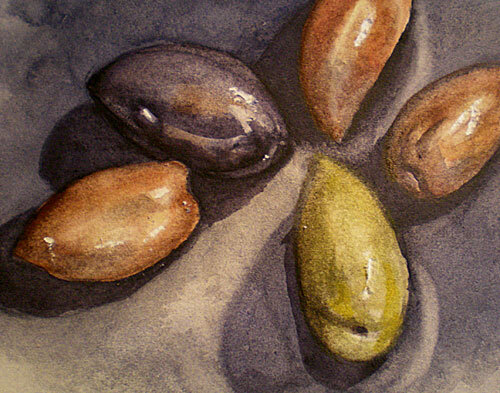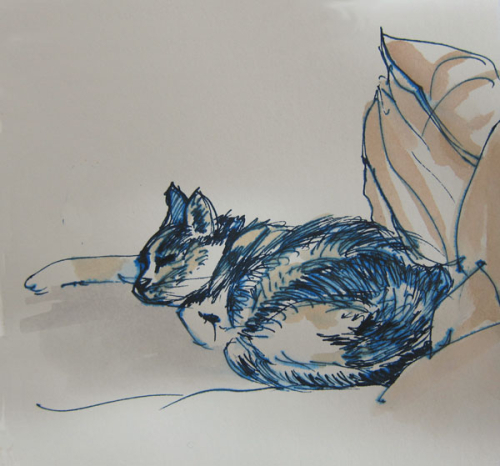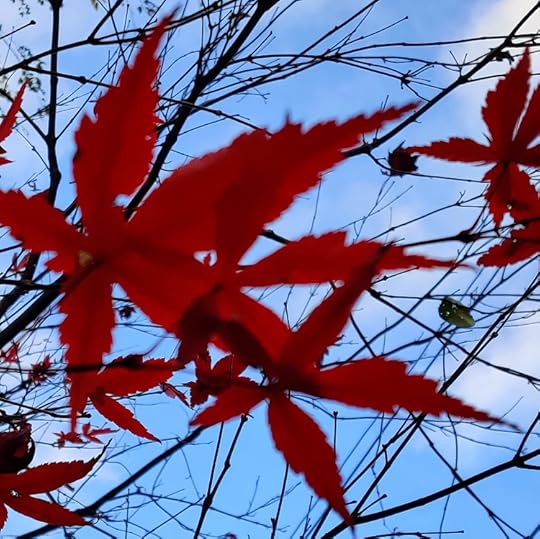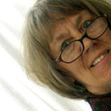Elizabeth Adams's Blog, page 14
January 12, 2022
Incremental
The mantel corner this year
One of the boring (and probably annoying) things about me is that I've always had a lot of self-discipline. The trait got dinned into me early; it's a characteristic of my father, who was always trying to perfect a new table tennis shot, or build something in his self-built house that was absolutely level and true. But my mother, too, made it clear that half an hour of daily piano practice wasn't optional, nor was my homework, nor was picking up my room -- and she'd sit next to the piano with her knitting, talk over the schoolwork, or even sometimes lend a hand in my messy room, to encourage me. There was an expectation that once I'd committed to something, I would finish it, and give it my best effort. Quitting wasn't an option, so I had to learn perseverance and discipline.
In my public high school, nobody taught me how to study the way kids in prep schools learned it. I can remember feeling completely overwhelmed by the workload in university, especially at the ends of terms in my first two years (not for nothing do we still have those exam dreams!) and listening on the phone to my mother's patient advice: divide up the tasks into a schedule, concentrate on one at a time, and just bring them all along, bit by bit. Somehow the research got done, the books read, the papers got written, and the studying accomplished, and even if they didn't all result in excellent grades, I could see that I was making progress, and by my junior year, things fell into place.
The same was true in our design/communications business, where we were often responsible for large projects with significant budgets, lots of moving parts, and tight deadlines. Each had to be broken down into manageable sections and tasks, assigned and overseen, and put on a carefully-organized schedule so that the deadlines could be met. The responsibility for organizing these projects often fell to me.
Now, with those professional years behind me, it's still the way I tend to organize my time, but I also get distracted because although I finally have more time to do my own creative work, there are also more people around me with needs and desires which are important to me. So I find it's even more crucial, if I want to get anything done besides the daily tasks of ordinary life, to be intentional about certain areas: reading, music, language-learning, writing, making things, exercise. I don't make task lists, I don't have a daily schedule, and I don't make resolutions. I just have certain things I try to do every day (exercise, language practice, some reading, ongoing correspondence and/or journaling); some I do more or less weekly (write a blog post, for instance) and others that I just try to move forward incrementally, not necessarily all at the same time (drawing, knitting or sewing, piano/music, larger writing and publishing projects). Hopefully, there is also some unstructured time to dream, relax, think and meditate, and to be social.
The same, last year.
I've been thinking about all of this because of two things.
One: a friend asked me what I'm addicted to, and after thinking a bit, I answered "accomplishment." By that I didn't mean the sort of accomplishment that results in praise, but a sense of having done something with my time, having learned, having grown a little, and having contributed to others. If I don't feel that way, I can get discouraged, angry, even depressed.
Two: the pandemic has insisted that I see myself as the age that I actually am, and that age is no longer young. Mortality has been in my face, and in the face of everyone over 60, whether we like it or not. Regardless of how young and energetic I feel or appear, I've been forced to face the fact that life is finite, and my own time is running shorter.
So how does this penchant for accomplishment fit into that? What if a time comes when I can't work hard, maybe can't see or hear very well, maybe am diminished by illness or simply by old age, or, conversely, am in the role of care-giver -- and the ways I've organized my life and, yes, my mental well-being, don't work anymore? Will I be able to adapt?
Well, it's more likely if you think about it ahead of time. One example from the pandemic has been instructive: it used to be extremely hard for me to imagine not singing in a choir, as this is something I've done every Thursday night and every Sunday for most of my life. But I haven't been able to do it for almost two years, except for our "virtual choir" pieces during year one, and it now seems possible to me that I will never go back to it, certainly not at the intensity with which it once occupied a portion of my life. I had a hard time getting there, but now this prospect is surprisingly OK with me.
While there are dramatic events that sometimes change our lives practically overnight, most change is like this: incremental. It's another timeline broken down into small parts. There's a series of small relinquishments or substitutions; tasks that once might not have seemed important now are much more so, and vice versa; priorities shift. But for now, my intention is to keep at those central, core tasks that form my identity and have shaped my days for as long as it makes sense to do so, while keeping an openness and readiness in the back of my mind for whatever the future holds.
If you have also had thoughts on any of this, I would love to hear them.
January 5, 2022
Stars
January 6th is Epiphany, when Christians celebrate the coming of the Three Kings from the East to the cradle in Bethlehem, led by a star blazing in the heavens that "stopped over the place where Jesus lay." It's always been my favorite Christmas story, in spite of the fact that I hardly believe a word of it. Like all the Biblical narratives, it probably has seeds of truth. The Greek word magos (of which magoi is the plural, later shortened to magi) gives us "magic" and "magician": the magi were generally thought to be priest-astronomers who were well-versed in astronomy and astrology, alchemy, and other types of esoteric practices. A cult of such "wise men" did exist in Persia, and were almost certainly known to the early Christians of Judea; perhaps some emissaries like these did visit Herod, bearing gifts.
Fr Dwight Longenecker, a Catholic priest and writer who is also interested in archaeology, has attempted to trace the origins of the Magi in his book The Mystery of the Magi-The Quest to Identify the Three Wise Men. He looked toward Arabia, rather than Persia, because for the Judeans of Matthew's time, Arabia was actually "East". Longenecker believes that the Magi could well have been astronomers from Nabatea, whose wealthy capital was Petra, in Western Arabia. He writes:
Just two details will illustrate the wealth of evidence that combines to strengthen this theory. The finest gold in the ancient world was mined in Western Arabia, and the shrubs from which incense and myrrh are sourced only grow in Eastern Arabia and Northeast Africa, which is all territory controlled by the Nabateans. The gold, frankincense and myrrh were clearly diplomatic gifts (representative of the Nabtean kingdom) from King Aretas IV of Nabatea to honor a grandson or great grandson of his neighbor King Herod.
Secondly, new discoveries by archaeo-astronomers from Spain have shown that the Nabatean temples were aligned to the solstices and constellations, and the archaeological dig at the temple of Khirbet et Tannur, uncovered a stone carved zodiac proving that the Nabatean Magi were star gazers.
Most of the details of the story that we've internalized don't come from Matthew's account at all - for instance, he never mentions that there were three wise men, or that they were kings. Later writers, some of whom may have been fascinated with astronomy and astrology, elaborated and embroidered the Gospel infancy narratives:
Around the same time one of the earliest Christian writers, Ignatius of Antioch (d.108) in his epistle to the Ephesians, waxes eloquently about the star, “a star shone in the night brighter than all other stars. Its light was indescribable, and its strangeness produced wonder. And all the rest of the stars with the sun and the moon made a choir around that star which outshone them all.”
Contemporary scholars mostly agree that the story is likely a fabrication; but still, it caught and continues to capture our imagination and love for the mysterious and miraculous, the contrast between great wealth and extreme poverty, and the table-turning concept of kings bowing down to an infant in a manger.
I thought about the Magi again this past weekend as we watched a documentary about the James Webb telescope, launched on Christmas Day and now well into its journey to deep space, where -- if everything goes as hoped and planned -- it will send pictures and data of unprecedented clarity and detail back to earth, furthering our knowledge of both the near and far reaches of our universe and its origins. The telescope will be able to "see" infrared light from over 13.5 billion years ago, when the first stars and galaxies were forming, and it will also give much clearer data and measurements of planets in other galaxies which might harbor conditions conducive to life.
In some ways, it's easier for me to believe in wise men from the East, following a star to Bethlehem to search for the infant King of the Jews, than to wrap my head around stars coming into being from a Big Bang 13.8 billion years ago -- what does that number even mean? Let alone the concept of some sort of ultra-compacted super-heated Density suddenly expanding into the Somethingness that eventually gave rise to Everything. But I do trust science, and mathematics, and the observations of astrophysics, and I am prepared to be amazed many more times in my life by the explorations and discoveries of space science. I hope I live long enough to see some proof of what I have always believed: that we are not alone in the universe, and that Life probably exists in many other places and forms.
These ancient and modern quests come together in expressions that are quintessentially human: the upward, wondering gaze toward the night sky; the search for that which is greater than us, and for unifying principles and meanings; the quest for Life in its infancy; a way to make sense of who we are, where we come from, and where we are going. I like to think that the ancient astronomers would be proud of us for continuing their search for knowledge, and that we might look back and realize how remarkable some of their observations and calculations actually were. In the cosmic sense, of course, the 2000 years that separate us is barely a blink of an eye, or the trace of a shooting star.
January 1, 2022
A New Year's Walk
Happy New Year! I hope I've learned and grown in 2021, even if what stands out more clearly right now are the struggles and worries. May 2022 be a gentler year for all of us, and may we remember to be grateful for what we have -- including each other.
So, in this picture, I'm waving to you from the banks of the St. Lawrence river, with the Biosphere in back of me. Yesterday we went for a long walk at Parc Jean-Drapeau, site of Montreal's Expo 67: this geodesic dome, designed by Buckminster Fuller, was the United States pavilion for Expo, and is now a museum dedicated to the environment. But yesterday we were pretty much the only people on the two islands in the middle of the river, and even though it was a grey day, it was just what I needed. Lots of wildlife tracks in the snow, many birds including a huge flock of robins (what are they thinking?), the St Lawrence roiling along in its winter mood, red rose hips against the snow, junipers loaded with blue berries, overgrown plantings, a greenhouse where large tropical plants were being overwintered, and many odd graphic images from the desolation of winter and the decay or remnants of structures built for Expo that have fallen into disuse. I hope you'll enjoy taking this walk with me, and I wish you all the best for the year to come.
December 28, 2021
Books of 2021
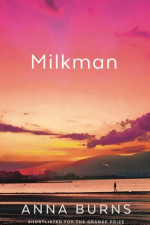 Well, here is the list of books I read during the past year, and I am grateful for every one of them. Each became my companion for a time during this second pandemic year, and through many of them, I was joined by the intrepid members of my book group who met every Friday morning to discuss the next 50 or 100 pages of whatever novel we were reading together at the time. We helped each other finish a lot of long and sometimes difficult books, we kept each other company, and got to know each other better as friends. So although reading is, by its nature, solitary, it's hard for me to look down this list and not think of the experience with certain titles as a shared one. I know that this sort of group is not for everyone, but it's been good for me, and as facilitator for most of the books, it's really kept me on my toes.
Well, here is the list of books I read during the past year, and I am grateful for every one of them. Each became my companion for a time during this second pandemic year, and through many of them, I was joined by the intrepid members of my book group who met every Friday morning to discuss the next 50 or 100 pages of whatever novel we were reading together at the time. We helped each other finish a lot of long and sometimes difficult books, we kept each other company, and got to know each other better as friends. So although reading is, by its nature, solitary, it's hard for me to look down this list and not think of the experience with certain titles as a shared one. I know that this sort of group is not for everyone, but it's been good for me, and as facilitator for most of the books, it's really kept me on my toes.
If I could only recommend one of these books to you, I think it would be Milkman, by Anna Burns, written about Ireland during the Troubles: one of the freshest, most original pieces of writing I've read in years, with brilliantly-drawn characters who will win your sympathy. I've just finished Arturo's Island by Elsa Morante, and admired her writing, though the story of a boy growing up on an island off the coast of Sicily is one that makes you cringe at times. While we're talking about islands, there was the Laexdal Saga, from The Sagas of Icelanders, well worth anyone's reading time as a vivid portrait of human love, jealousy, greed, generosity and wisdom 1000 years ago, with characters who leap off the page and feel entirely recognizable. Finally, Roy Jacobsen's The Unseen is the first book of four about people living impossibly difficult lives on tiny islands off the coast of Norway. It's Nordic noir without even trying to be; I've only read the first in the series but found it absolutely compelling.
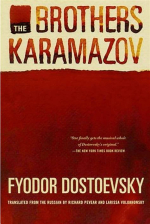 The year began with Dostoevsky's The Brothers Karamazov, which is a book that should be on every serious reader's shelf and taken down several times as we go through life, because with each reading, it reveals something new to you about yourself. I was very happy to read it with the book group; I think we all got more out of it than we would have alone.
The year began with Dostoevsky's The Brothers Karamazov, which is a book that should be on every serious reader's shelf and taken down several times as we go through life, because with each reading, it reveals something new to you about yourself. I was very happy to read it with the book group; I think we all got more out of it than we would have alone.
Teju Cole's Black Paper is a collection of essays not just about race, but about the dark side of human nature as well as the forces of beauty that are its counterpoint, and most employ his signature style of interweaving seemingly-unrelated ideas or subjects to give a new perspective. Golden Apple of the Sun combines a series of photographs of his kitchen countertop during the pandemic with a concluding essay that is a searing indictment of racism from the early days of American colonial history. Fernweh, on the other hand, is a book of carefully-sequenced photographs taken in Switzerland that has been a consolation to me this year, not because they are pretty or conventional pictures, but because in depicting a place that at once feels closed but seductive, both artificial and natural, beyond-human and yet curated and manufactured, it somehow evoked the strangeness and alienation of the world in which we've found ourselves, but lands squarely on the side of beauty, offering a space in which to breathe. It has stayed on my bedside table since the day it arrived.
A confession: I started with the intention of reading all of Dante's The Divine Comedy, but found Inferno hard going: it's because the year itself was just too depressing to spend more of it in a fictional or imagined hell! On the other hand, I thought that Hermann Broch's The Death of Virgil was one of the most brilliantly-written books I've ever read. It's not well known, and it's written in a daunting stream-of-consciousness style with page-long sentences and few paragraph breaks, to which you simply have to surrender, allowing yourself to be swept along. The reward is that if you stay with it, your view of what it might mean to meet one's impending death, as a literate and conscious person, will be enlarged and changed.
Finally, I was surprised to find myself enchanted and then almost obsessed by Hermann Hesse's The Glass Bead Game. I had read almost all of Hesse's other works, but not this one, his last major novel, which sets up a hypothetical world in the future where education and culture are preserved and controlled by an elite group of celibate, secular, male intellectuals who live in near-monastic remove from the "real world" of ordinary people. The high achievers of this elite society became Masters of the "Glass Bead Game", a never-fully-described exercise in which participants make connections between disparate aspects of cultural artifacts or knowledge, such as relating a law of physics and a Bach sonata. The book provoked a great deal of thought about contemporary academia and tensions between the life of the mind and "real" everyday life in the world; European intellectual life prior to WWII; the preservation of human culture; relationships between men and women; and the interplay (or lack thereof) between political history and cultural/scientific achievement. If you didn't read it back in the 1960s, take a look now! To whet your appetite, I'll include, at the end of this post, my somewhat lame but colorful response to our group leader's challenge to create a mini "glass bead game" ourselves.
Happy reading in 2022, and, as always, please let us know in the comments what YOU read in 2021 and what books were highlights for you! I look forward to hearing from you.
2021
The Unseen, Roy Jacobsen
Arturo's Island, Elsa Morante #
Dubliners, James Joyce (excerpts)
Shifting the Silence, Etel Adnan
Time, Etal Adnan
Black Paper, Teju Cole
The Glass Bead Game, Hermann Hesse#
Beowulf, Seamus Heaney, trans.#
Anil's Ghost, Michael Ondaatje#
Unwinding Anxiety, Judson Brewer
Real Presences, George Steiner
The Lowlands, Jhumpa Lahiri
Golden Apple of the Sun, Teju Cole
Fernweh, Teju Cole
The Laexdal Saga (from Sagas of Icelanders)#
The Interior Circuit, Francisco Goldman
The Little Red Chairs, Edna O'Brien
Under the Glacier, Haldor Laxness #
Clive Hicks-Jenkins, a monograph by various authors
The Hostage, Brendan Behan
Milkman, Anna Burns#
The Divine Comedy: Inferno, Dante
Faithful and Virtuous Night, Louise Gluck
O Pioneers, Willa Cather #
Girl, Woman, Other, Bernadine Evaristo
Death Comes for the Archbishop, Willa Cather
The Noise of Time, Julian Barnes
Agamemnon, Aeschylus #
The Death of Virgil, Hermann Broch
Travels with Epicurus, Daniel M. Klein
The Return, Hisham Matar
A Month in Siena, Hisham Matar
Breasts and Eggs, Mieko Kawakami
The Lying Life of Adults, Elena Ferrante
Maps for Migrants and Ghosts, Luisa A. Igloria
The Brothers Karamazov, Fyodor Dostoyevsky #
# indicates a book read with my book club
December 24, 2021
Christmas Love and Light to All
This angel comes to you bearing my best wishes for these last days of 2021, however you observe or celebrate them - may there be love, and music, and some joy and peace in your life, and recognition that you have friends who care about you even if we are all far away from one another.
The sun is shining brightly on the snow outside my window today, as the large flock of little sparrows chirps in the hedge, and the cat does her morning toilette, all of them oblivious to the troubles and worries that beset their human companions. Inhabiting their world for a few moments reminds me I'm a sentient being too with some control over my thoughts -- and all is neither dark nor lost on this Christmas Eve Day, there is a lot of love and hope in my heart, and a lot of love and hope out in the world.
I'm not singing this season, or tonight, but here is a link to the beautiful service of Lessons and Carols that our choir sang last Sunday - I hope it brings an hour of peace and reflection for some of you too. Happy Christmas! And please write a note here and tell me how and what you're doing. All the best to you, with love,
December 21, 2021
Lights on at 1 pm: Winter Solstice
The shortest day of the year was a sunny one in Montreal, at least for the brief daylight hours. I started this quick watercolor after lunch, and noticed that the park lights came on at 1 pm! It's 3:45 now, and the sun is going down - there are just some last rays on the tops of the trees, and white snow on the ground that looks as though it might stay. If I ever forget how far north we live, the solstice reminds me.
The day may have been sunny, but the mood in the city definitely is not, as we battle an Omicron surge that is frightening in its speed and intensity of transmission. Many restrictions have been put in place already by the province, including closing the schools, and our mairesse, Valerie Plante, has declared a state of emergency from her home, where she is isolating after testing positive herself. The hospital emergency rooms are already near capacity.
My Christmas wish to all of you is to that you won't disregard the threat of this variant. The behavior you've adopted that has kept you safe so far is probably not enough to avoid infection. Please get a booster if you're eligible; wear a high-quality or a double mask; keep your social contacts and your errands in public places to a minimum. The exponential rise in cases we are seeing here is astounding, and half or more of those admitted to hospital are now double-vaccinated people. Booster roll-out has been slow in Canada; here in Quebec only the elderly have received third doses, and people above 65 have just recently become eligible to make appointments -- the virus is taking full advantage of that fact. (My own appointment is scheduled for December 27.) And while hospitalizations are about a third of the level they were with the first wave, and deaths are still fairly low, the danger is not just to the elderly or vulnerable, or the unvaccinated. A two-month old baby died of COVID in hospital here last week. Please, be very cautious, and if you live in a place where Omicron has not yet hit, think very carefully about your holiday plans, who you will be seeing, and what it means to love them, because with this variant, everything can change in a week or less. This is one year when the pressure or desire to visit one's family should take a back seat to protecting them. I say this particularly to my friends in the U.S., many of whom still seem oblivious to what we are going through up here -- and it's not even the worst of it yet -- or what people in Europe are going through.
So it will be a different Christmas, once again...we have a tree, and lights, and the smells of baking; there's snow outside and warmth inside, but the holiday will be a quiet one. I'm sure we'll check in with friends and family via zoom. My daily task is to keep my own spirits up, and to face the seemingly-interminable pandemic, and uncertainty about the future, with courage. It's not easy for me, and takes conscious intention. Today before I got up I thought quite a bit about gratitude. Later I baked a complicated cake, made some five-pointed origami stars, wrote letters, took a long vigorous walk in the park, and still, I felt the presence of discouragement and anxiety in the background. The predictability of the solstice is ancient and steady, though -- and I took comfort in that.
December 15, 2021
Christmas Fruit, and Breakthrough Color
I don't have many words to offer today, but I do have some color. This bowl of fruit was declared off limits for one evening, when I did the watercolor, and then was very quickly eaten over the next days. Pomegranates and clementines seem like the most festive of all.
In spite of the fact that Quebec has an extremely high vaccination rate, cases are surging here as they are almost everywhere, driven not by Omicron - yet - but by infections among young children at schools and daycares, who infect their parents, who then take the virus to the workplace. Fortunately, hospitalizations and deaths are still low, and more and more of the 5-11 year-olds are getting vaccinated. Omicron is still a very small percentage, but increasing fast: it will explode, and soon.
It's all really depressing. I won't be eligible for a booster until early January. More restrictions are likely to be imposed, and in my opinion, far too late. The federal government of Canada is requesting that all international trips be cancelled, and it sounds like border restrictions will be re-imposed soon. "Rethink your holiday parties," is both lame and ineffective, but people are desperate to be with their families, too. Sadly, we had already cancelled our plans to be with my father in upstate New York today for his 97th birthday, and obviously we won't be seeing our American family members for Christmas. I have to just try not to think about what that means. Meanwhile, in the U.S. and many other places, people seem to be doing whatever they feel like, and counting on their vaccinations to protect them from serious illness. I hope it works, and wish them well.
So, all I can say, from this interior space where I will be for most of the next few months: color helps. And reading. I've been working on a new print, which you'll see eventually: the carving was complicated and absorbing, and the repetitive process of printing is calming. I've been grateful for it.
I want to think not about breakthrough infections, but about breakthrough color: the way primary red and yellow, and gamboge and intense cobalt blue and viridian push aside everything else we're obsessing about, and make us stop and look, make us feel something emotional and positive.
How are things where you are? And what's helping you cope this holiday season?
December 6, 2021
What Means "Progress"?
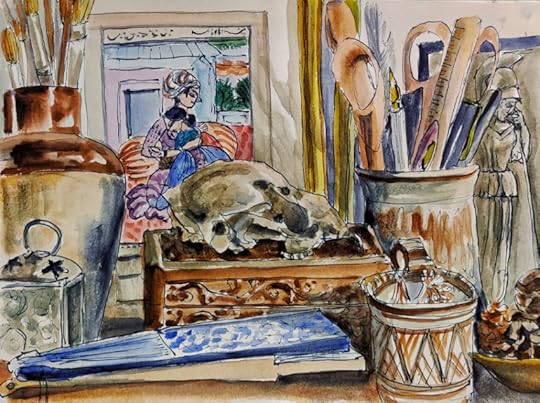
Still life with Persian miniature and Athena, watercolor and ink, December 2021
There are two groups of people for whom "pandemic time" has taken on particular poignancy. The young, because they can only measure time by the years they've already lived, have felt like they were being robbed of a huge percentage of their lives. And the old have felt that the pandemic took away what was most meaningful: human contact with those they loved - as well as the loss of freedom and choice that everyone has suffered, but which has felt particularly bitter for those who see the years remaining as few. The only difference is that most of us who are older have seen and lived enough to be able to cope with loss, change, and the need for patience a bit better than those who are young. Even for those who are still feisty and determined, some level of acceptance about what we can't change often seems built-in by the time we reach our sixties and beyond.
Nevertheless, for someone who has always tried to move forward in her work and understanding, I've found it extremely difficult to have a sense of progress at all. Yes, I hold myself to a rather rigorous standard in that regard. But it's been so hard, and required steely determination, to have any sense of momentum, to envision goals and work toward them, or -- for that matter -- to think about the future. For what is that future? When will it arrive and will it look anything like what we've left behind? And -- this is the worst thought -- will there even be a future for me, for you?
I'm grateful for a bit of Buddhist teaching here, which reminds me that all we ever actually have is the present moment. Where I have trouble is when I start feeling like I've wasted so many of those "present moments". I can get quite down on myself about this. But when I do remember that wisdom, I'm more able to use those moments wisely.
What we don't see, and can't see yet (in my opinion) is what this extraordinary time has actually been, and continues to be: a massive interruption of all of our lives that will never go 'back to normal" but will result in changed people, and a changed human society, in the same way that wars have caused massive change for those who lived through them. Humans always want to go back to "what was," but in this case, that's not going to be possible. Partly because, with the variants, it feels like we're back at square one - even though we aren't - and partly because so much has already changed, including ourselves.
A friend wrote me today that he has realized he simply cannot go back to the work he has been doing for the past 35 years. He said he was extremely sad about that for a long while, but that now he's letting go. Another friend, a voracious reader and thinker, writes that she has trouble concentrating on books or music, and what she finds most difficult is the loss of a sense that she is growing and learning. Recovering these aspects of ourselves is going to take work, thought, and not a small amount of self-love and self-forgiveness. We have to be willing to let go of our old habits, goals, and expectations; to grieve what's lost; and, in time, embrace and open ourselves to something new that we may not even be able to see yet.
The paintings in this post were done 17 months apart; the one at the top just a few days ago, the other in July of 2020. The objects on my desktop look pretty much the same -- the jars of brushes and pens, the skull - memento mori - atop the carved wooden box, the bowl of nuts and pine cones, the Chinese fans and Mycenean cup. But when I studied the two paintings I did notice a significant difference: in the more recent one, there are images of people. I had moved both the Persian painting and the postcard of "mourning Athena" (a relief carving I love from the Acroplis Museum in Athens) onto my desk fairly recently, and I think it's because I wanted to see images of humans. All right, Athena is a goddess, but she is always portrayed as a woman, and the mood and attitude of this carving seem particularly appropriate these days. And the Persian painting of lovers, with its delicious colors of blue and lavender, salmon and pink, its soft pillows and patterned fabrics, reminds me of love and languor and gardens outside the window, in suspended, storybook time.
I wasn't comparing the two to ask myself if I've made "progress" in an artistic or technical sense. Actually I think the bottom one, the earlier painting, is probably "better". But I don't keep a sketchbook and do paintings solely to try to move ahead that way, or judge myself. It's also to keep a visual diary, which often ends up telling me things I hadn't realized. The newer painting says that I was missing people, and wanted them near me. Thankfully, this fall and early winter we've shared some indoor dinners, and it's been a real happiness to be together that way again. At the same time, there are friends and family members I haven't seen for two years, and that's genuinely painful; there are others who have left us who I'll never see again.
We need, I think, to be less concerned with progress, and more with allowing ourselves space and time to grieve, to accept change, and to start to think about what's next for us only if, and when, we feel ready to do that. In the meantime, in the present moment, let's look around ourselves and see what's there.
Still life with Snail and Mycenean Cup, watercolor and ink, July 2020
November 30, 2021
In Defense of Omicron
An inscription. Altes Museum, Berlin.
It was my mother who first taught me the Greek alphabet. I don't know how or why she knew it, because she didn't know the language itself, but she knew the letterforms and their names, and taught them to me when I was still quite small. We used to chant the alphabet, just as children do when learning the Roman one; alpha, beta, gamma, delta, zeta, eta, theta... and I heard her voice again when I sat down in my first ancient Greek class in university and the professor presented us with the alphabet to be learned for the next day. There was something about the letterforms that obsessed me then, and continues to obsess me now: to me, they are extremely beautiful and balanced, whether carved in an inscription, or playfully scattered around the heads of characters on a vase, or written by hand in script in my notebook. I like making these forms. They can be seen, of course, as a code that my mind used to translate laboriously, but now does quickly, into sounds and their equivalent Roman letters, but I don't want to see them as a code, but solely as their own identity. For some reason, I just like being around them, having them in my life.
Pages of Aristotle, from a monastery library in Meteora.
I don't remember much of my ancient Greek, but a pandemic project has been to study some of the modern language. When we made our first trip to Greece, I was completely engrossed in sounding out all the Modern Greek signage; and at ancient archaeological sites, I would spend a lot of time looking at bits of inscriptions and was thrilled when I could actually understand a name or a word, but frustrated that I couldn't communicate much at all. Now I do at least one lesson a day on Duolingo, often two. My first uninterrupted "streak" ended after 200 days or so when, somehow, I simply forgot; today will be day 320 of the next streak. As I wrote earlier in the pandemic, it's a lazy and not terribly effective way to study a language if you really want to become fluent; I still believe you've got to put in the hard and boring work of memorizing conjugations and lists and grammatical rules, and I haven't done much of that. But I know a lot more than I did when I started, even if I'll still be tongue-tied if we ever make it to Greece again. I'd be a lot faster now at knowing what I was looking at in signage, be able to read a menu, ask some questions, be polite, but I'm not sure how much useful material I've actually learned, and very much doubt I'd understand much of what was said to me, at least at first.
What has kept me at it, I think, is this strange desire to be in the presence of those ancient letters every day and live in their world, which is not the world of Roman letters, is not at all English or French or German -- though those languages all owe a great debt to Greek -- but a set of symbols, descended from the alphabet of the seafaring Phoenicians, that have been used to write the Greek language since the 8th or 9th century B.C. That, alone, is incredible to me.
The numbers, in my notebook.
Obviously these letters have been used to represent a lot of things over the years, especially in mathematics and science. And now, we've got virus variants named for Greek letters, so that geographical places can avoid the stigma of attachment, and subsequent blame. I wasn't too upset about Alpha, or Delta -- both of which are overused letters in fraternity names, and therefore seemed like fair game -- but Omicron? Omicron rather upset me. I like the word itself, and am very fond of the letter, which is so...round, simple, elemental. It's one of the few letters of the Greek alphabet that remained entirely unchanged in the Roman, precisely because of that simplicity and the universal necessity of its sound.
I had better steel myself: we're probably in for a slew of variants, and Greek variant names. For me, though, omicron will remain first and foremost a letter, a sound, and a form: the universal circle. Something beautiful, written by human hands, almost forever.
November 22, 2021
Looking Back at Ten Years Ago, and Facing Forward
This afternoon we walked up to our studio; it's about a 25 minute walk through Montreal neighborhoods. Today was chilly, but not freezing, and most of the trees have already lost their leaves. Some of the last to fall are the ginkgos, and now and then we came upon a wet pile of their golden leaves. In front of many houses, people had already bundled their less-hardy shrubs into structures of wood and burlap, or tents of green plastic-impregnated cloth. We had snow flurries a few days ago, and it won't be long before winter actually descends.
I don't like carrying my laptop in my backpack; it's just a little more weight than my back wants to bear these days when I'm on foot. So I had asked J. if he could set up an old computer for me at the studio; I can use my phone for any connectivity or communication needs while I'm there, but if I'm doing artwork and need some photo references, that's when the large computer screen is helpful. After we arrived, he found an old ASUS computer and set it up on my desk, plugged in the power adapter, and clicked the switch. It came on, we both gave a little cheer, and he left me to it.
From the outside I hadn't been sure if this was one of his or one of mine, but certain keys was very worn, as they tend to be on all my keyboards, and I recognized the home screen immediately: a carved pillar from an English church we had visited. It turned out, though, that this wasn't the computer right before my current one, but two computers ago. As it booted, I remembered how slow it had been. I looked at the programs on the desktop and in the tray; similar to now, but different. The keyboard layout was French, and didn't come back to me right away. Neither did the dated interface. I clicked on the photo archive: what came up were images from 2011. It was a little bit like opening a time capsule from ten years ago -- which, in digital years, represents quite a distance.
One of the first things I saw was a photo of our cat, Manon, on the first day she came to us after having been hit by a car and rescued by someone in our studio building. There were drawings I had done at a concert, in the metro, and in airports; I was just starting to keep sketchbooks and draw seriously again; that was also the year I started making linocut prints.
Olives, watercolor, 2011.
Manon, 2011
There were photographs of trips to Florida to visit Jonathan's elderly uncle, gone now for a number of years; photographs at MOMA seeing the retrospective exhibition of Robert Frank's "The Americans" with dear friends -- one of whom is also gone now, far too young; there are also pictures from the launch of Open City. For that matter, J. and I both look quite a bit younger ourselves - I was still in my fifties then, and taking pictures with a Canon digital point-and-shoot; at the time I was sharing my photos and artwork on Flickr.
On July 14, 2011, I wrote that we bought our first smartphones. Facebook was in the bookmark bar at the top of the screen - I'd joined fairly recently -- and Twitter was there too. That fall, we went to Iceland for the first time, and then on to London to visit dear blogger friends. My excitement and enthusiasm are palpable: in October of that year, I wrote fifteen blog posts, and in early November I started to make a series of huge drawings based on what I'd seen in Iceland.
--
This year, 2021, I wrote one post in all of October, and only 2 in September. Counting back to 15 posts ago takes me all the way back to the beginning of June. I've noticed my flagging attention to the blog ever since wrapping up my pandemic diary last March, after we passed the one year mark. I honestly had no idea what to say there anymore, and didn't feel like adding to the cacophony. In our focus on downsizing and re-organizing our lives, I haven't been doing that much artwork either, which has depleted away another major subject area. And of course we haven't seen many people, or gone anywhere to speak of, except to those often-dark interior spaces of the self, where I've certainly reflected and learned a good deal, but much also remains unprocessed -- as I think it will until this period in our lives feels much further away in time. In 2011, who would have predicted the convergence of social, medical, political and environmental challenges the world would be facing in ten years? Who could have predicted how it would affect each of our lives?
I've felt myself becoming more silent. In the past eight months, I've become even less tolerant of social media, both because of what it is, and because of how I feel after spending time there. FB is now gone from my bookmarks. I check it very infrequently, and have stopped interacting there much at all. I'm almost never on Twitter, while Instagram continues to be a quiet but important artistic community for me. But what about the blog? Readership and commenting are greatly diminished from ten years ago, but there are still some faithful readers and correspondents -- maybe that's you. I ask myself: what is the blog's real function? Do I write here for the readers, or for myself? And when I'm not writing, is it because I'm unhappy but don't want to say so, or because it feels pointless or redundant... or what?
The Cassandra Pages was eight years old in March, 2011; it's now 18, going on 19. But for many years before I started the blog, I had kept a written journal. In January, I usually printed out the journal and all my significant correspondence, and bound them in a book. After ending the pandemic journal this past March, I started archiving my correspondence again, adding some diary-like notes, and any blog entries that I did make. Apparently that's my default: to make and keep, in some form, a record of this life, and to try to learn and grow from the process of writing about it. I didn't stop doing that.
Being neither a voyeuristic person nor an exhibitionist, privacy and discretion are important to me, so I carefully weigh what gets included in any public writing, the same as I weigh what I take into myself from the media and from others. And I also try to be aware of my ego, and the way it affects my thinking, my desires and expectations, and gets in the way of real growth and change. In our internet world of influencers, "Likes", viral posts, advertising, and money, so much communication has become shallow, and "success" cheapened to the point of insignificance when it comes to shaping a human life, gaining wisdom, and helping each other. At its best, social media connects us and allows us to encourage and help each other. At its worst, it both preys upon and actually increases people's insecurities, desire to be liked, and endless need for attention. There's a reason why the sages throughout the millennia have retreated to the desert, to mountaintops, and to wooded hermitages in search of silence and solitude, and why they have always recognized and resisted the marketplace, the crowd, and the allure of fame and the glittery but transient material world. The words that do come from them may be few, but they have meaning.
Over my own life, writing these journals (especially the blog) has changed and helped me, and the bonus is that through the blog, I've met you. For although I value and crave solitude and contemplation, I'm not a hermit by nature, but someone who needs and loves other people, and wants to talk, interact, and share. I also have a degree of healthy skepticism about my own thoughts; it's through reading and conversation and argument, as well as reflection, that we're able to sharpen our ideas and come to a greater understanding of what it means to be human, and also how to be a human in this ever-more-complicated world.
Where to find that balance and space is a question for all of us to ask, and the answers will differ. I do see that, for me, a withdrawal has been necessary, partly because too much noise and too many words dissipate my reserves of creative energy and positive thought, and partly because the companies that control those spaces have become increasingly predatory and toxic; I can't continue to participate and hold onto my integrity. That means accepting less interaction in a quantitative sense, but nurturing and being grateful for higher-quality interaction here, or in letters, calls, or in person.
But there's more to it than that. To be honest, this period of time has been one of the hardest in my entire life. I was OK for the first year, and then things started to feel much more difficult -- though they are now feeling less so. At times I've felt despair about both the present and the future, as have most of us -- but I haven't wanted to write about that here, where I know people often come to feel a little better, or to see something beautiful, or to be encouraged. And also, in real life, I've been responsible for other people and groups, and that has taken precedence. I simply haven't had much creative time or energy, or anything extra to give. Is that an apology? Yes...but it's also a statement about the reality in which many of us have been living. Things changed for almost all of us, and they may not be going back to the way they were. Loss, grief, letting go, and acceptance are all part of that, even as the world seems hell-bent on returning to "normalcy".
Looking back ten years into that old computer was instructive, as I consider the next decade. For me, it comes down to this: if I'm fortunate enough to still be here, ten unpredictable years from now, I don't want to look back and realize I wasted whatever precious time I had, either for myself, or for the people and purposes that go beyond me and give life meaning -- of which this blog and its readers have been one. That means making decisions, setting clear priorities, and cleaning out my spaces so that there is room, both figuratively and literally, to grow and change, and -- one hopes -- to have something to say.

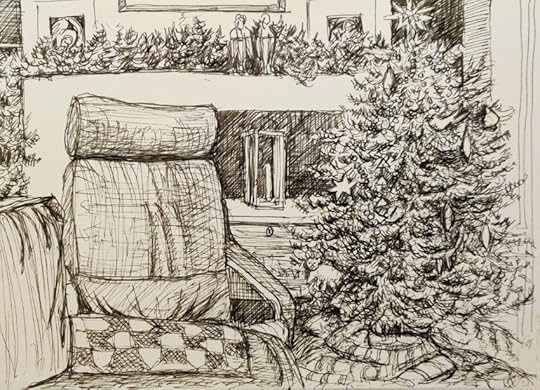
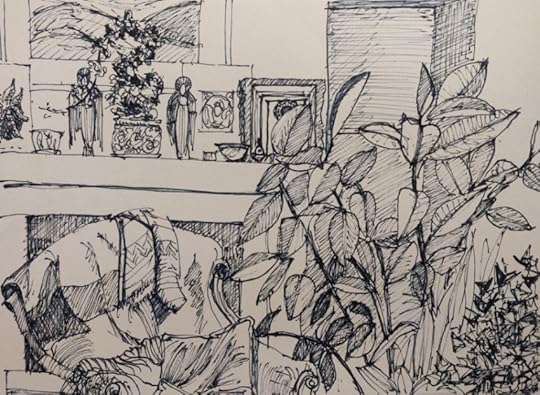
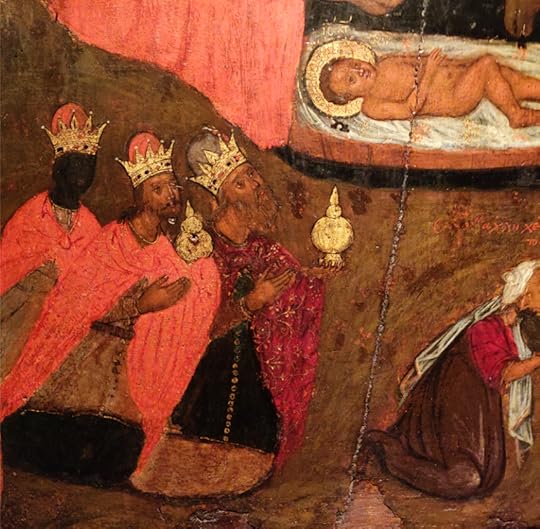

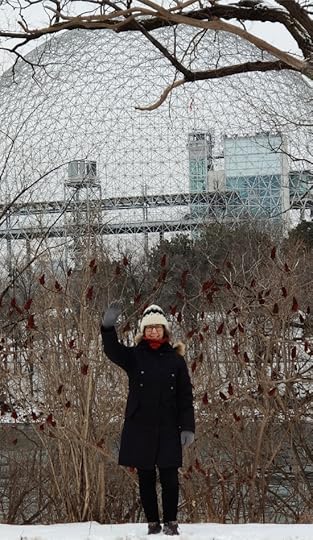
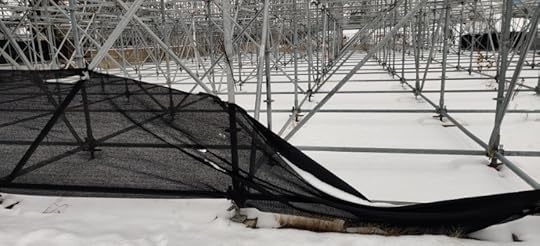
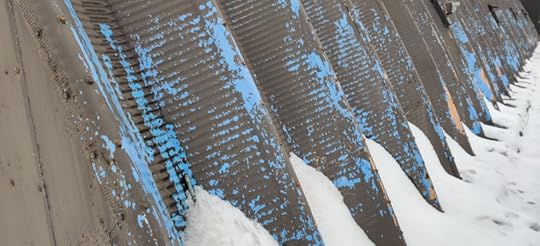
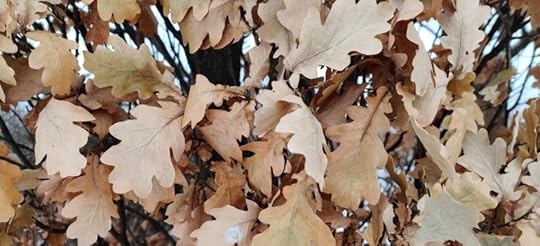
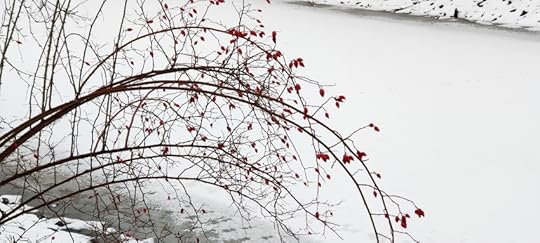

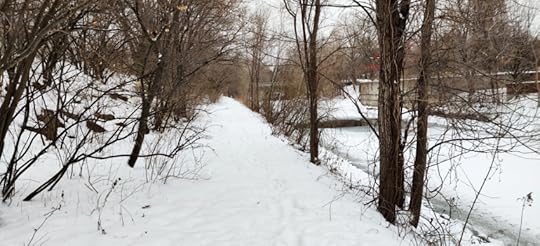
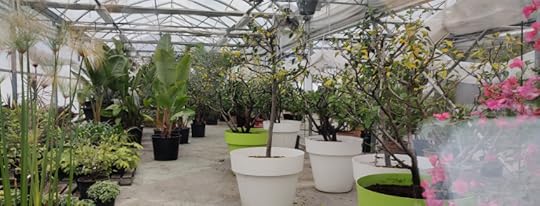
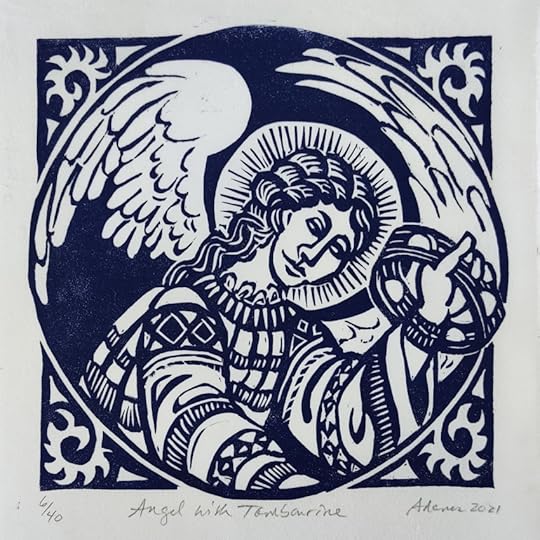

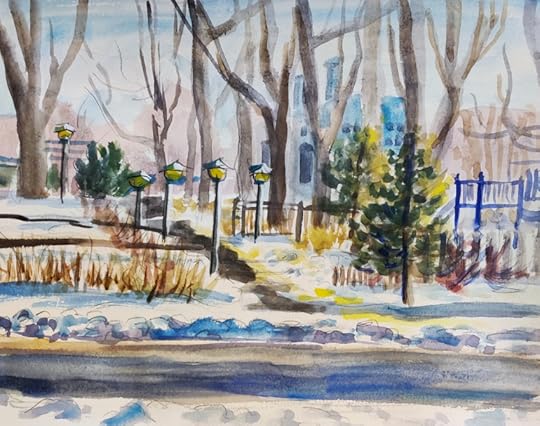
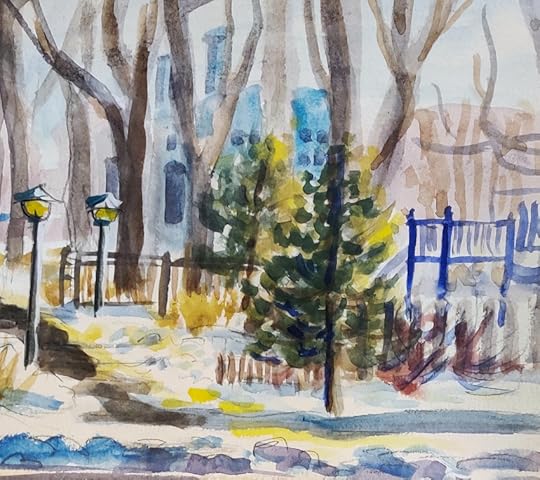
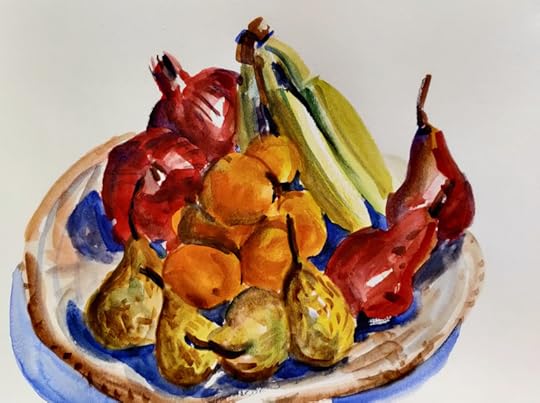
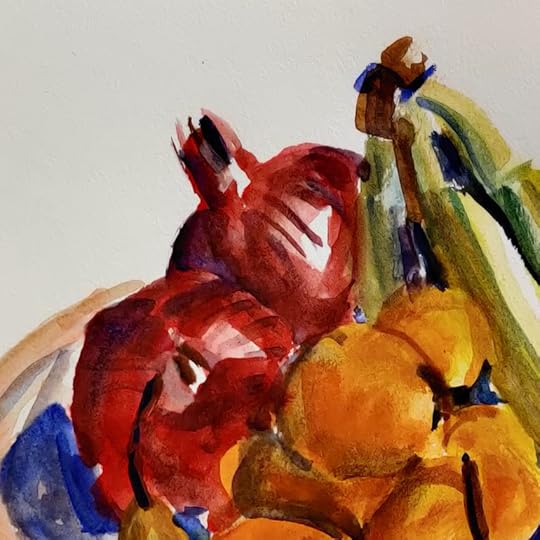
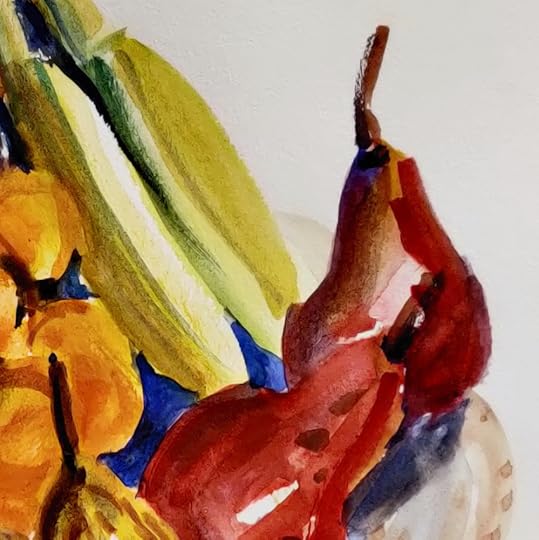
![15958644993602[12749]](https://i.gr-assets.com/images/S/compressed.photo.goodreads.com/hostedimages/1638865804i/32285273._SX540_.jpg)
